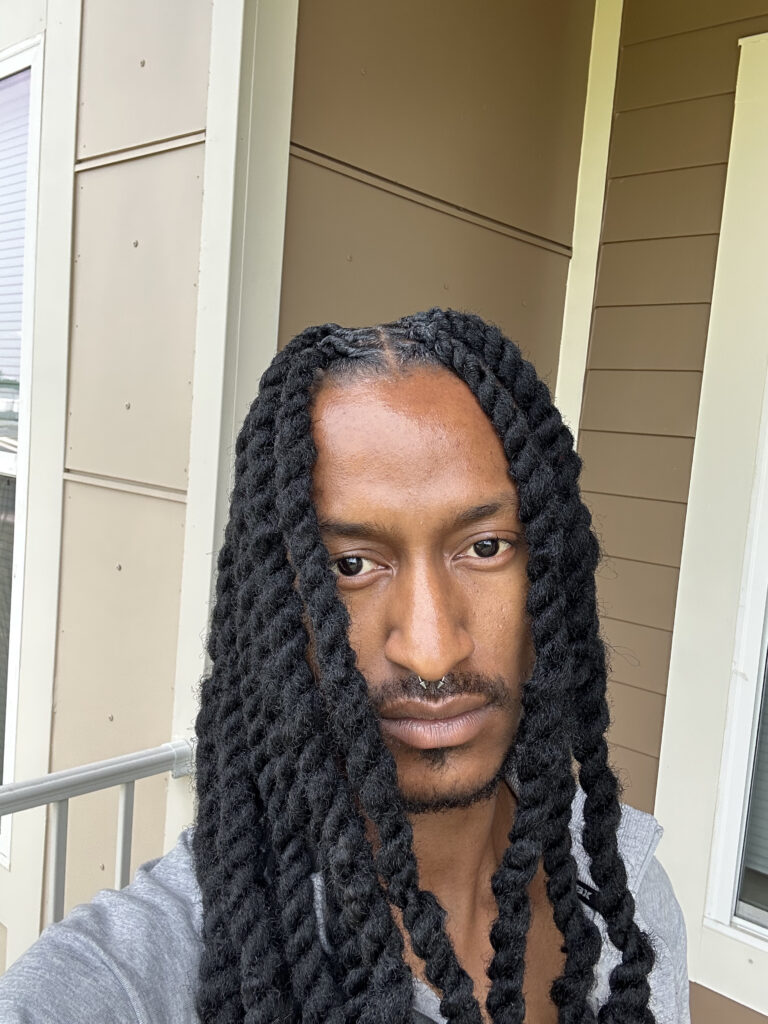Describe yourself in some detail to the class;
Hi everyone, my name is Tyshawn Khaalis. I am a Black first-generation collegiate gender-nonconforming person who is currently seeking an occupational endorsement in ethnobotanical fieldwork. I was introduced to this program through a peer whom I consider a great friend of mine and have since spent the past year and a half studying plant biology and human consumption in tandem out of obligation and personal interest. I consider myself to be philosophical to a degree that partially inspires my journey in Indigenous studies as a foundation of my framework in clarifying and surveying the relationship between nature and man. I am twenty-four, have studied and lived abroad, and currently reside on the east coast in a small city in central Virginia in between Richmond and Washington D.C. Some of my hobbies include reading and writing, exploring nature, participating in outings like fine-dining and excursions of all varieties, and I also love music. I recently attained an associate’s degree in cybersecurity and information technology in conjunction with wrapping up my requirements for this program, and intend to register at another four-year soon to complete a separate undecided bachelors. If it matters, I do not require specific pronouns to be associated by/with, and I identify as queer. I consider myself to be charismatic and kind, friendly and inviting, and adventurous; making friends is enjoyable to and for me, despite dealing with intermittent crippling social anxiety. Feel free to talk to me or ask for space if you need it! I am happy to be a resource in any way possible and hope that feeling is mutual. I’m excited to indulge in these lessons with you all and Lisa. Thank you.
What has your botanical journey been like up to this point?
My journey has been comforting and warm. As I mentioned I was introduced to this field of study through a friend and within that I had ample opportunity to build more friendships, both regional and distant, that have helped me sustain a feeling of security over the last year. I have become more familiar with environmental initiatives and incentives, and have become a more active community-member because of it. Having a foundational knowledge of plant usage, even if basic, has allowed me to more comfortably navigate nature and botanical discussions as a student of plant science. I also feel more equipped to address critical issues in the field that hinder the progression of radicalized work initiatives to stay concurrent with the world’s development leaning into the future.
Do you enjoy foraging, gardening, hunting?
I have complicated viewpoints about hunting that are largely backed by my western upbringing and ignorance stemming from that. Also, I naturally have a soft-spot for animals and am against violent measures of resource-acquisition, though I understand the foundation of hunting is not focused on either precedent as a basis for its performance. I think that I just need the opportunity to be exposed to actual situations versus discussing it in theory. I also don’t know anything about any weapons to be truthful. I have foraged every briefly and minimally and I do enjoy that. I have intentions of attending conferences and meetups when I am able to do so. I have not personally planted anything out of childhood but I do engage with my neighbor and his homegrown garden in our community.
What is/are your favorite plant (s)?
As a general rule of thumb I have always loved ferns. I also think that snake plants are beautiful and mystifying. I do not currently own any household plants, but pictured in my post header is a friendship plant which I also find mesmerizingly beautiful. I love coleus plants and have grown up with them being cultivated in my living community. I also adore beets and all of the berries.






Welcome Khaalis,
I hope we can bring plants even closer to you and enhance their importance in bringing healing, health, and happiness to your life. I often sit in my garden ‘watching’ the plants grow and it the tranquility reliefs stress and calms me down. Photographing plants and looking at the great details of them give me great pleasure too. At the moment many willows are flowering, so I have been dissecting the catkins of these flowering trees and shrubs. They are pretty intricate all of them having a nectary (or two) at the base of the flowers, even though many think they are wind pollinated, but I think insects also play a big role in the pollination of willows. Below two images showing the unique features of Salix arctica, highly dissected styles remeniscent of the styles of grasses (which are wind-pollinated) and nectaries below the flowers.